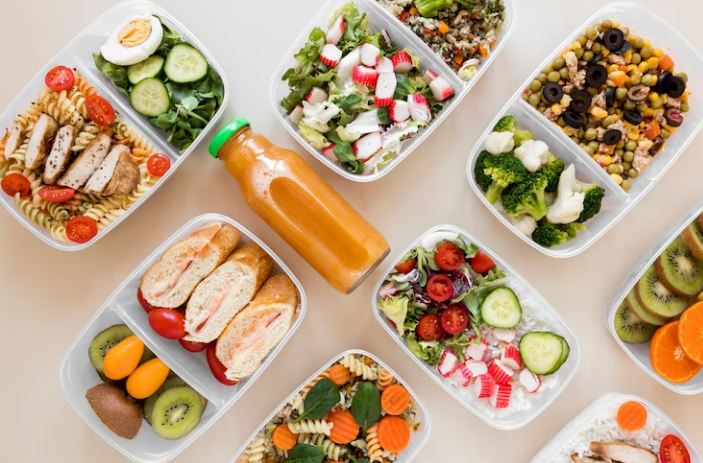Meal planning is more than just a trendy concept—it’s a practical and efficient way to save money, reduce food waste, and make healthier choices in your daily eating habits. By taking the time to plan your meals for the week ahead, you can streamline your grocery shopping, minimize impulse purchases, and ensure that you utilize ingredients effectively. In this blog, we will explore the benefits of meal planning and provide tips to help you master this valuable skill.
1. Save Money on Groceries
One of the most significant advantages of meal planning is the potential for saving money on your grocery bills. When you plan your meals in advance, you can create a detailed shopping list based on the ingredients you need. This reduces the chances of buying unnecessary items or making impulse purchases. Additionally, having a clear plan for your meals helps you avoid eating out or ordering takeout, which can be more expensive than home-cooked meals.
2. Minimize Food Waste
Meal planning allows you to utilize ingredients more efficiently, which helps reduce food waste. By knowing exactly what you need for each meal, you can buy the right quantities and avoid excess perishable items that may end up going unused and eventually discarded. Moreover, when you plan your meals, you can repurpose leftovers and incorporate them into subsequent meals, further reducing waste.
3. Make Healthier Choices
When you plan your meals in advance, you have more control over the ingredients and portion sizes, leading to healthier eating habits. By focusing on balanced and nutritious meals, you can ensure that your diet includes a variety of food groups and meets your nutritional needs. Meal planning allows you to incorporate more fruits, vegetables, whole grains, and lean proteins into your meals, promoting a well-rounded and wholesome diet.
4. Streamline Cooking and Meal Preparation
Meal planning helps streamline your cooking and meal preparation process. With a pre-determined menu, you can batch cook certain ingredients or prepare components of meals in advance. This saves time and energy during busy weekdays when you may have limited time to cook. By having a plan in place, you can avoid last-minute stress and enjoy a more organized and efficient cooking routine.
5. Embrace Variety and Culinary Exploration
Meal planning doesn’t have to be monotonous—it’s an opportunity to embrace variety and explore new recipes. Incorporate different cuisines, flavors, and cooking techniques into your meal plans to keep things interesting. Experiment with new ingredients and spices, and challenge yourself to try new dishes. Meal planning can be a fun and creative process that brings excitement to your meals.
Tips for Mastering Meal Planning
- Set aside dedicated time each week to plan your meals. It can be helpful to choose a specific day that works best for you.
- Take inventory of your pantry, refrigerator, and freezer before creating your meal plan. This will help you utilize ingredients you already have on hand.
- Consider your schedule for the week when planning meals. Opt for simpler and quicker recipes on busier days.
- Get inspiration from cookbooks, online recipe websites, or meal planning apps. Look for recipes that align with your dietary preferences and goals.
- Plan for leftovers and incorporate them into subsequent meals to reduce waste and save time.
- Make a detailed shopping list based on your meal plan and stick to it when grocery shopping.
- Prepare ingredients in advance, such as chopping vegetables or marinating meat, to save time during meal preparation.
- Use storage containers or freezer bags to portion and store leftovers for future meals or quick and easy lunches.
Conclusion
Meal planning is a valuable skill that can transform your eating habits, save you money, and reduce food waste. By dedicating time to plan your meals, you can streamline your grocery shopping, make healthier choices, and enjoy a more organized cooking routine. Embrace variety and culinary exploration, and let meal planning enhance your culinary experience. Start mastering meal planning today and reap the benefits of efficient and enjoyable meal preparation.
Remember, by mastering meal planning, you’re taking a proactive step towards a more cost-effective, sustainable, and healthier way of eating. Happy planning and happy cooking!

